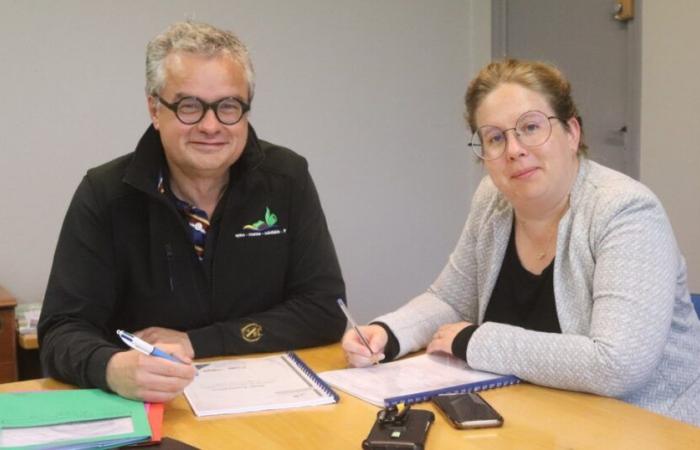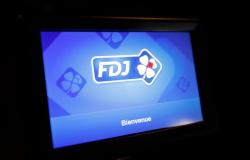What was your personal and educational background?
Franck Déplat : “Originally from Puy-de-Dôme, I am the son and brother of a farmer, which explains why I have always been in agricultural education. During my studies, whenever I was on vacation, I went to the family farm. I obtained an engineering degree from Enitiaa (National School of Engineers for Agricultural and Food Industry Techniques, editor’s note) in Nantes. When I passed my competitive examination, the Ministry of Agriculture offered to finance my studies. I accepted knowing that in return I would have to commit to the civil service for eight years. It was feasible because I knew that I would not be able to settle down on the family farm straight away, my father being too young to retire. Furthermore, at that time, agricultural education was experiencing strong development and I knew that I could find a job there. »
Where did you start your professional life?
FD : “It was for the start of the 1992 school year, as a food industry teacher at the Lycée de Roanne-Chervé. It was a training opening. I stayed there until 2005. Agriculture has always appealed to me and I have been attached to transmission for a long time. When I was offered this position, I was happy. For me, it was not only being a teacher, it was also leading a project that interested me: recruiting young people and internship supervisors, finding partners with whom to work. It was also about convincing teachers to come and work in this new sector. During these years at Chervé high school, I was also elected to the board of directors of the establishment and participated in international cooperation, particularly in Senegal. It was during this period that I started my family. My three children were born in Roanne. I made connections here. »
What was the rest of your journey?
FD : “I took the road to the south of France to become operations director at the Nîmes-Rodilhan agricultural high school, an establishment focused on arboriculture and viticulture. This responsibility allowed me to be on the ground and put the boots back on. Part of the harvested grapes was vinified in a private cellar and another in a cooperative cellar. I was proud to take part in a collective adventure. I am convinced that farmers need to work closely with their neighbors. In 2011, I became deputy director of the agricultural high school of Cibeins, in Ain, then of that of Marmilhat, in Puy-de-Dôme, in 2013. In 2020, I became director of the high school agricultural sector of Combrailles, in Saint-Gervais-d’Auvergne (63). This establishment specializes in the pet trade, with breeding of dogs and cats, but it has links to agriculture as it works with shepherd and flock protection dogs. »
Was it a desire to one day become an establishment director?
FD : “Having grown up in the heart of Limagne, I was asked very early to castrate seed corn. Around the age of 12, I was already supervising youth teams in the fields. It was very educational. I think at that moment I acquired the desire to lead. During my thirteen years of teaching, I really enjoyed the aspect of transmission and contact with learners, but I wanted to act differently. Becoming deputy director, then director, was for me the opportunity to continue to participate in the teaching mission in a different way. »
Why come back to Chervé high school?
FD : “Paul Candaele had been director since 2017. He left for other responsibilities in January 2024. The interim had been taken over by Pierre Lornage. I wondered whether or not it was appropriate to apply, and especially whether or not it was a hindrance to work with former colleagues. The answer ultimately was “no”. This establishment, to which I remained attached, has changed a lot. It is currently in the process of restructuring, generating a new dynamic. I am happy to be able to accompany him. I officially took up my duties on September 1, but I found out about my assignment in June. I was therefore able to pass the torch to the person who arrived in Saint-Gervais-d’Auvergne to replace me and personally take ownership of Chervé’s files, striving to have an outside perspective, without preconceptions. »
What are your missions within the establishment?
FD : “My roadmap is set by the supervisory ministry, represented by the Draaf (Regional Directorate of Food, Agriculture and Forestry, editor’s note). My mission is to successfully complete the renovation of the Perreux site, with the moving of teams from an obsolete building to a new one. Reception and working conditions will be better. But we must support this daily evolution. I must also ensure the recruitment of students for all the sectors taught, particularly agricultural. For this, I intend to rely on the teams and on the orientation law for agricultural sovereignty and the renewal of generations in agriculture. I also aim to implement various projects on the farm, such as market gardening, in connection with the Roannais agglomeration, or the rehabilitation of the pig workshop, which is becoming obsolete, both from a production point of view. training than profitability. I do not envisage that there will be no more training related to pork in our establishment. More generally, I must drive the establishment’s policy, which works well, whether in high school, apprenticeship or adult training. I know that I can rely on a team with experts, each in their field. »






